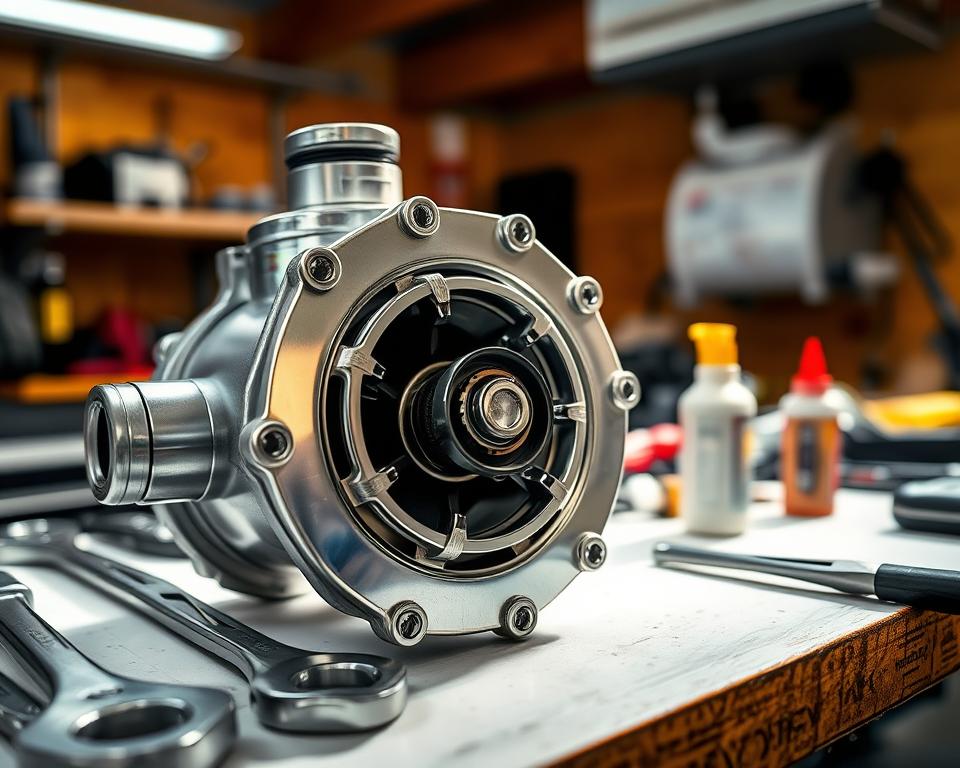RV Septic Tank Service: Essential Care Tips
Have you ever thought about what goes on to your RV’s Septic tank as you’re rolling down the highway? It’s not just dodging nasty odors. Keeping your RV Septic tank properly serviced ensures hassle-free trips. A properly cared-for system prevents messy mishaps and costly expenses. Still, many overlook this critical care. In this guide, we explain the necessity for regular RV waste pumping service. We’ll spotlight why maintenance matters and offer tips for cleaning your recreational vehicle’s Septic tank. Prepare for trouble-free journeys!
Central Ideas
- Consistent RV Septic tank service is essential for top performance.
- Understanding your RV Septic system enables you to avoid costly repairs.
- Preventive maintenance wards off unpleasant odors and clogs.
- Set a pumping schedule based on your usage.
- Practice best practices for draining your holding tanks.
- Bypass common mistakes to extend the life of your Septic system.
- Know when to enlist professional help for Septic services.
Understanding RV Septic Systems
An RV Septic system is crucial for any camper. It includes multiple holding tanks that process waste efficiently. You’ll find three critical tanks in an RV: the fresh water, the gray, and the black tank. The fresh water tank supplies clean water for drinking and cooking. Meanwhile, the gray tank holds wastewater from sinks and showers, ensuring cleanliness. The black tank, specifically for toilet waste, also has a vent to reduce odors.
Preserving a healthy camper sewage system demands understanding how these parts interact. Routine checks of the tank levels are vital to avoid overflow and guarantee everything runs properly. Getting to know the termination valves is important too. These valves are key in properly directing waste disposal. By understanding these components, you can keep your RV in great shape and savor your travels without unwanted hassles.
| Reservoir | Purpose | Typical Size |
|---|---|---|
| Fresh Water Tank | Supplies drinking and cooking water | 30-100 gallons |
| Gray Tank | Stores wastewater from sinks and showers | 30-60 gallons |
| Black Tank | Stores toilet waste | 30-50 gallons |
Benefits of Regular RV Septic Tank Service
Consistent RV Septic tank service is imperative to keeping your system reliable and long-lasting. Without timely maintenance, you could face system failures, bad smells, and expensive repairs—issues that interrupt your adventures.
Overlooking the upkeep of your RV’s Septic system may cause it to back up. This not only affects your RV’s function but also your comfort levels. A clean and properly cared for system is vital for smooth trips, granting you a serene travel experience.

Scheduled maintenance extends your sewage system’s lifespan and keeps a clean living space. Keeping an eye on your Septic tank helps you catch issues early. This proactiveness cuts costs and stress, providing you confidence during your journeys.
How Often to Pump Your RV Septic Tank
Determining the best schedule for RV Septic tank maintenance hinges on the vehicle’s usage. For those continuously on the road or staying in their RVs, it’s wise to drain the black tank every 3–5 days. This practice maintains cleanliness and stops unexpected issues during voyages.
Weekend adventurers can usually wait until they return home to pump their Septic tank. Keeping waste in the tank too long, though, can cause build-up that impedes the tank’s function and smell control. It’s crucial to monitor the tank’s level closely, readying for disposal once it hits two-thirds full to keep everything running efficiently.
The capacity of your Septic system, along with how you use your RV, will dictate when to pump. Knowing these aspects boosts your RV’s performance and minimizes the dangers of poor waste management.
| Travel Style | Recommended Pumping Frequency | When to Pump Right Away |
|---|---|---|
| Frequent Usage | Every 3-5 days | Level reads 2/3 |
| Weekend Trips | After return home | Unpleasant odors or lazy draining |
| Extended Trips | Every 2-3 days | Visual indicators of fullness |
How to Empty RV Holding Tanks Properly
Properly managing a recreational vehicle’s holding tanks is key for a enjoyable camping experience. Always start by draining the black tank first. This method allows the gray water to flow through and flush out the hose. Make sure the use of a high-quality sewer hose for a tight connection and to reduce spills. Once the tanks are emptied, thoroughly flushing the black tank is important. Running a built-in black tank flush or comparable alternatives can significantly reduce residue.
After the emptying process, it’s essential to close both valves securely. This action is necessary to sustain a fully operational Septic system. Additionally, RV owners must utilize dump stations properly and follow local laws. Regular cleaning practices for recreational vehicle Septic tanks are key. They preserve the system’s optimal functionality and prevent future odors.
How to Stop RV Odors & Clogs
To control odors and avoid clogs in your RV, careful attention is essential. The task begins with ensuring enough water in the holding tanks. Adequate water helps in breaking down waste properly, lowering bad smells.
Picking suitable toilet paper is essential in this process. Opt for RV-safe toilet paper that dissolves quickly, stopping clogs. This minor adjustment considerably helps with maintaining seamless waste flow.
Employing enzyme-based treatments can further boost waste decomposition and odor control. These bio solutions help keep your RV smelling fresh. It’s also important to regularly examine vent pipes for obstructions to maintain good airflow and prevent odors from infiltrating your living area.
RV Septic Maintenance: Mistakes to Avoid
Maintaining your RV’s Septic system the right way is crucial for its effectiveness and longevity. When non-biodegradable items like wipes or feminine products are flushed, they can cause significant blockages. These blockages can result in various problems that are difficult to resolve.
Not using enough water when flushing can also hurt the system. It causes waste buildup, resulting in nasty scents and potential damage. Furthermore, a common mistake at full hook-up sites is leaving the black tank valve open. This causes waste to accumulate at the tank’s bottom.
Preventive measures involve consistently flushing and rinsing tanks after emptying them. Ignoring maintenance can escalate into significant issues necessitating costly repairs. Being proactive and knowledgeable protects both your RV and your finances.
When to Seek Professional RV Septic Services
Recognizing when to seek professional RV Septic services is critical for keeping a healthy Septic system. Some clues point to the need for expert intervention. If you notice slow-draining tanks or get persistent foul odors coming from your RV, it is wise to act promptly. These signs often indicate underlying issues that demand a thorough Septic tank service for resolution.
Visible leftover waste after emptying can also indicate problems within your Septic system. This situation may not clear with routine maintenance and may call for the use of specialized equipment. Professionals are equipped to address complex challenges via tools, such as high-pressure water jets, to ensure a thorough cleaning process.
Prompt professional assistance can make a big difference. Minor troubles can swiftly escalate into more severe complications without proper care. Investing in professional RV Septic services protects the integrity of your system and lengthens its lifespan.
| Problem Indicators | What to Do |
|---|---|
| Slow draining tanks | Contact professional RV Septic services for assessment |
| Persistent foul odors | Schedule Septic tank service for diagnostics |
| Visible leftover waste | Seek immediate assistance from a professional |
| Frequent clogs | Consider expert cleaning solutions |
Ensuring Long-Term RV Septic Health
Long-term care for RV Septic systems requires attention past basic pump-outs. Performing deep cleaning of tanks every few months avoids buildup and extends system life. Examining dump valve seals on schedule stops leaks. Additionally, sanitizing the system keeps it clean and functioning well.
It’s important to monitor tank sensors to verify they work correctly. Incorrect readings may lead to over-filling, hurting performance. Regular sensor checks and tweaking maintenance schedules can stop this problem.
| Task | How Often | Outcome |
|---|---|---|
| Deep Cleaning Tanks | Every 3-6 months | Prevents buildup and clogs |
| Inspect Dump Valve Seals | Monthly | Reduces risk of leaks |
| Sanitize System | Every 6 months | Keeps odors down |
| Monitor Tank Sensors | Monthly | Prevents over-fill |
Proactive maintenance is central to your RV Septic system’s long-term health. It lays the groundwork for pleasant and seamless travel experiences.
Why Choose All In Sanitation for RV Septic Needs
All In Sanitation specializes at delivering RV Septic services that meet each client’s distinct needs. Whether it’s regular pump-outs or full tank cleaning, they get the vital role of a well-functioning Septic system in your RV’s performance.
With extensive expertise in RV Septic systems, All In Sanitation provides top-tier guidance on maintenance and care. Their team is experienced in the particular challenges RV owners encounter and delivers effective solutions when troubles arise.
Choosing All In Sanitation enables RV enthusiasts immerse in their journeys, entrusting Septic concerns to a trustworthy ally. Their dedication to excellent service brings tranquility and improves the pleasure of adventures on the open road.
Final Thoughts
Looking after your RV Septic tank is essential for smooth travels. It’s necessary to understand your system and keep up with regular services. This ensures you won’t face unexpected issues on your journey. These key steps cover frequent pumping and practicing sound waste management practices.
Efficient long-term care holds your system in top shape. By implementing the provided maintenance tips, you can enhance your travel experience. This strategy guards against expensive repairs later. Keep in mind, steering clear of common errors and understanding when to seek professional help are vital.
Bottom line, being ahead of the curve in your RV Septic system’s maintenance ensures a stress-free adventure. It allows you to concentrate on making lasting memories. So, embrace these steps to heart and relish your road trips to their fullest.

